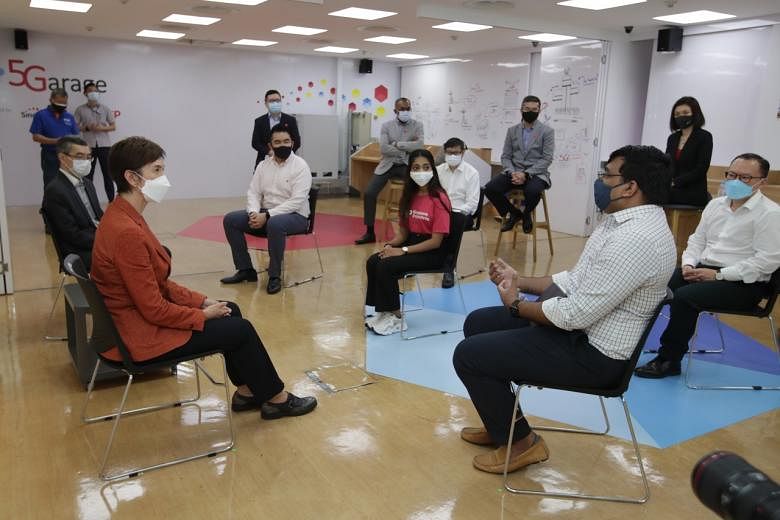SINGAPORE - More than 3,000 Singaporeans have been trained in 5G mobile technology skills in the last year, which is faster than expected, under a national effort to grow expertise in a field said to be important to the country's digital economy.
Announcing the update on Wednesday (Nov 17), Minister for Communications and Information Josephine Teo said that this "very rapid progress" was made possible through the combined effort of all 12 institutes of higher learning and industry partners.
In September last year, the Government said there were plans to train 5,000 5G professionals by 2023.
Speaking at a Singapore Polytechnic (SP) event, Mrs Teo said on Wednesday that globally, countries like the United States, China and Japan are deploying 5G technology at a rapid pace.
Similarly, Singapore is pushing ahead with its 5G roll-out, she said, noting that technologies like 5G and artificial intelligence "are key planks in the broader trend of digitalisation".
As of end-August, telcos M1, Singtel and StarHub said that their 5G networks - which can offer speeds 10 times faster than today's 4G and can allow more devices to be connected with much less lag - already cover half of the country. 5G signals are expected to cover the whole island by the end of 2025.
The private and public sectors have launched many trials for 5G solutions, such as the Government's test of a driverless road sweeper in Sentosa that can, in an emergency, be controlled remotely through 5G by an operator located 20km away.
Some 5G services have also been launched by the telcos, such as almost instantaneous streams of high-resolution videos for surveillance, which are more difficult to achieve with 4G.
Mrs Teo said that the various trials are nothing, however, without the people with the skills and the ideas to make things happen.
So, the initiative that trained 3,000 locals in 5G helps further develop a vibrant 5G ecosystem, she said.
Mr Lew Chuen Hong, chief executive of the Infocomm Media Development Authority (IMDA), said that "5G is the next bound of mobile technology that underpins our digital economy" and "offers many good job opportunities".
The 5G training was done under the Singapore 5G and Telecoms Academy, set up in November last year as part of IMDA's TechSkills Accelerator initiative. The initiative designs programmes to train workers and matches them to infocomm technology jobs.
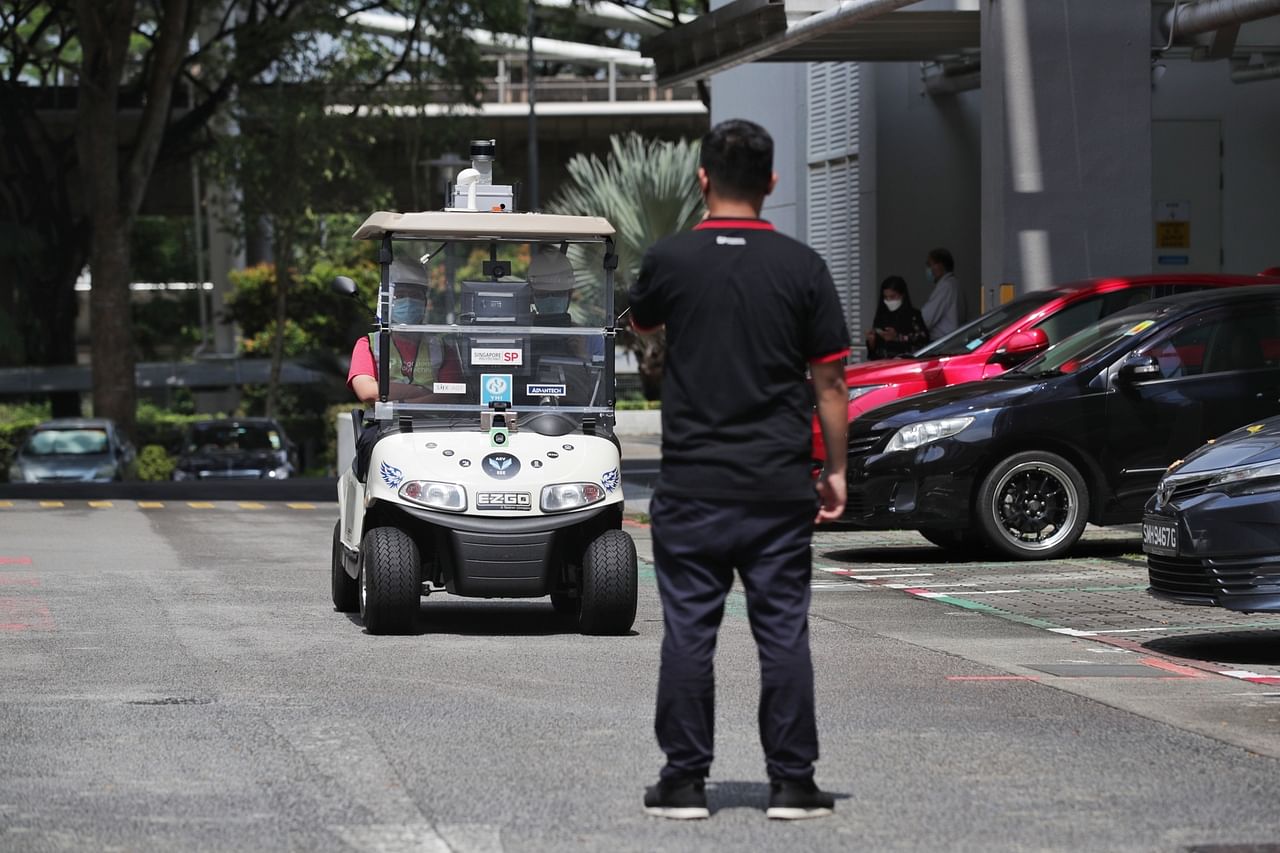
The 5G academy is led by SP and the National University of Singapore (NUS). It works with institutes of higher learning, telcos and other industry partners to coordinate programmes to develop skills across the country's 5G ecosystem.
The 3,000 Singaporeans were trained in skills that allowed them to operate and maintain 5G networks, as well as develop 5G services.
IMDA also announced last year that it was working with the telcos to hire and reskill another 1,000 professionals in 5G.
One of the trainees, Singaporean Ramanan Kalechelvam, said that learning 5G skills means services like online gaming with less lag and drone deployments can be developed and offered to customers.
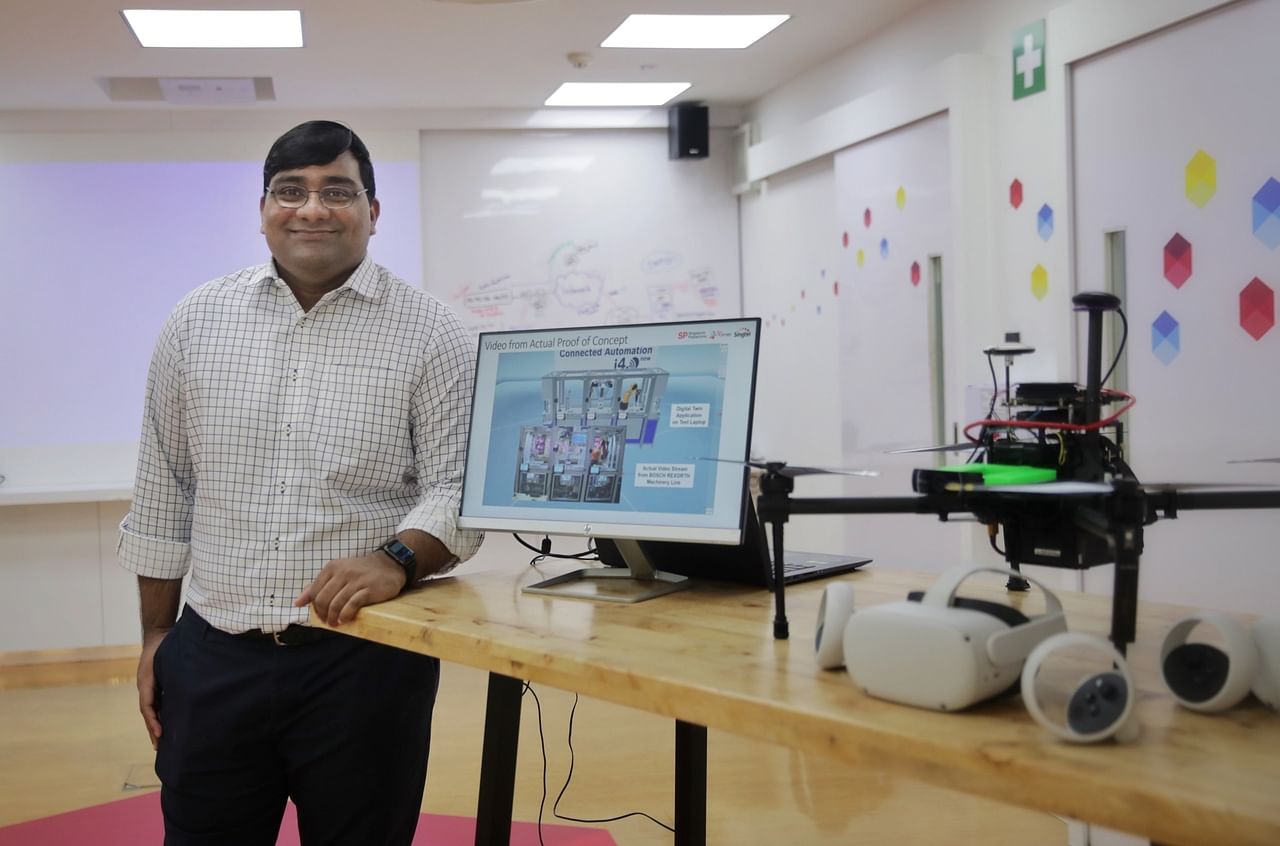
The 31-year-old Singtel development operations manager is under a programme that provides fresh and mid-career professionals on-the-job training in infocomm technology like 5G, while they earn a salary. For Mr Ramanan, he also picks up skills from trainers.
The training costs are borne jointly by IMDA and the employer.
"Having a deep understanding of 5G gives insight to what is coming next and what are the possibilities in the future, so that we can try to build solutions that are more future proof," added Mr Ramanan.
Singtel said that about 90 of its employees are slated to complete the 5G training programme by the end of the year, and more than 200 by the end of 2023.
M1 also announced on Wednesday that more than 90 of its employees will be trained in 5G skills under the hire and reskill partnership with IMDA. The telco is working with Workforce Singapore on this career conversion programme.
The training will be provided by SP and NUS, with on-the-job learning.
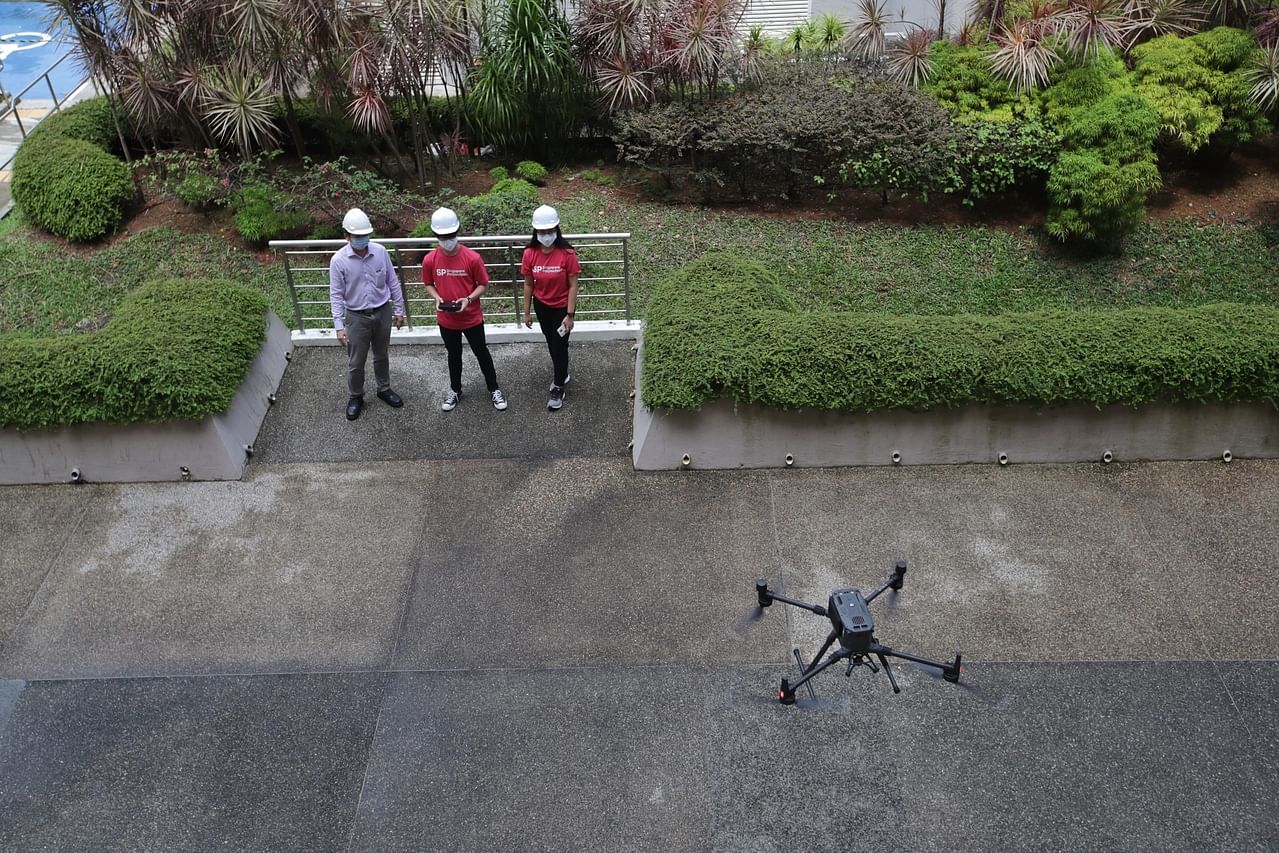
More 5G training resources are also being made available. Mrs Teo on Wednesday announced that the Singapore 5G and Telecoms Academy is launching a new training portal that consolidates and lists over 500 5G-related courses from different institutes of higher learning.
Some of the courses are short and last one to five days. But if a person takes enough related and relevant courses, he might be able to get a certification.
The courses on the new portal include practical hands-on training offered in SP's new 5G and Artificial Intelligence of Things Centre that Mrs Teo also launched on Wednesday.
The centre will help companies develop proofs of concept and allow them to consult technical experts for developing 5G and AI solutions for the advanced manufacturing and built environment sectors, as well as for operating and maintaining facilities.
For instance, local small and medium-sized enterprise W2 Industrial Services Hub is working with the centre to test the connection of wastewater sampling devices for Covid-19 detection to 5G networks.
Currently, these devices, about 200 of them, have been deployed in housing estates across the island and are connected to 4G networks.
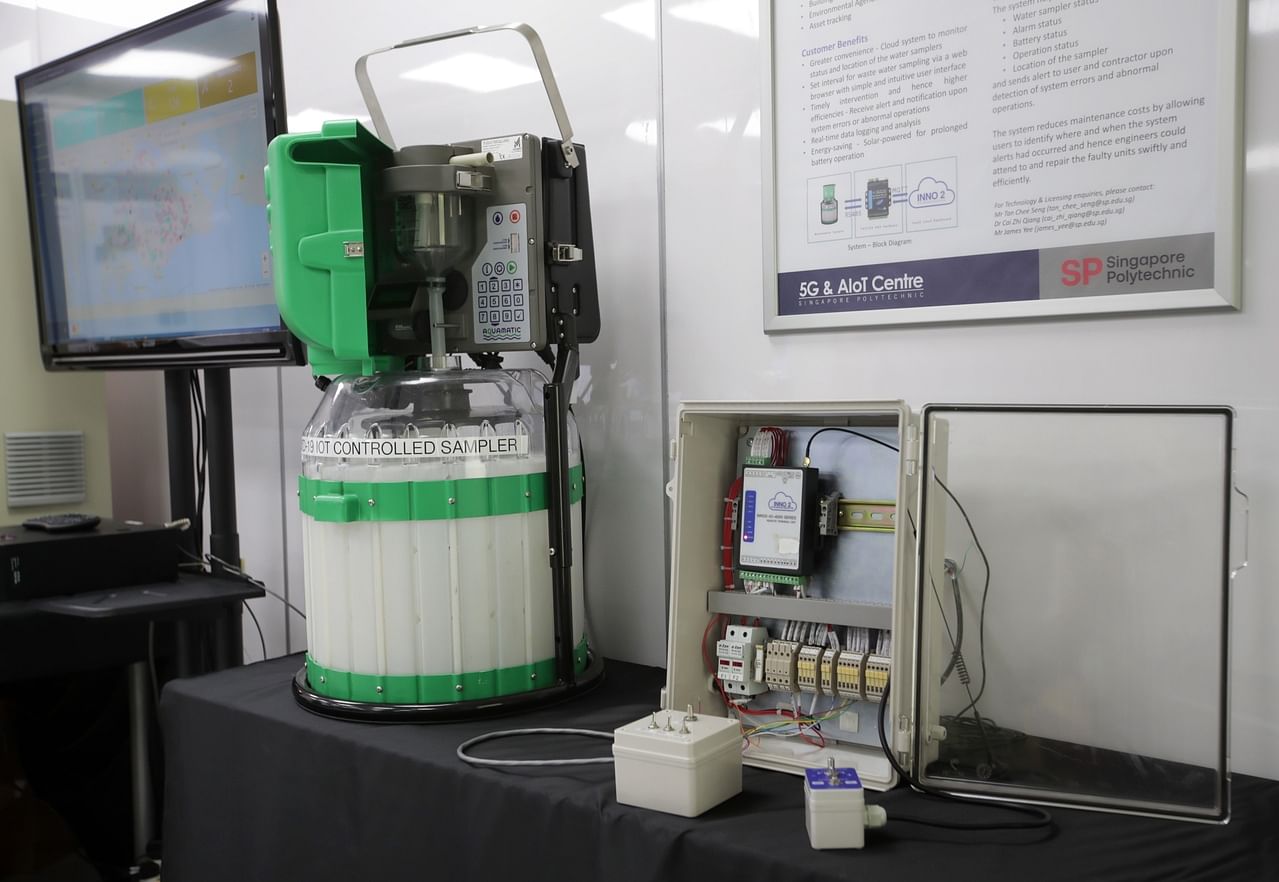
In theory, thousands of the devices can be hooked up to a 4G base station. But with a 5G base station, the number of devices that can be connected online to send back sample readings could be much higher - in the millions, on paper.
The centre is also working with technology and services supplier Bosch on 5G-connected cameras that can be used to detect fire or smoke in an airport hangar, and for monitoring human traffic to avoid overcrowding.
High-resolution videos of incidents can be sent almost instantly with 5G for faster actions to be taken. Doing this over 4G would be slower and more difficult.
For more details on the 5G training courses available at the 5G academy's site, visit this website.
